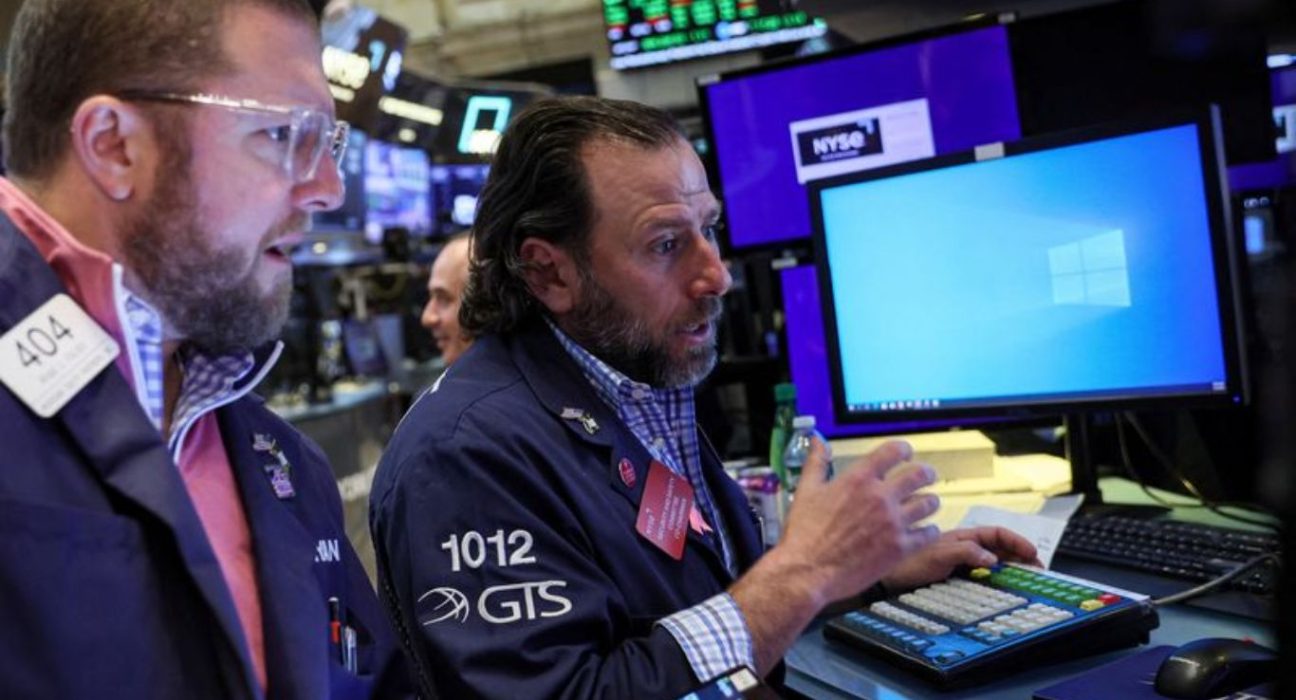Investor Aversion Persists in U.S. Equity Funds
In the seven days leading up to August 30th, investors continued to withdraw from U.S. equity funds, marking the fifth consecutive week of outflows. This persistent trend is driven by growing investor risk aversion, as uncertainty looms over upcoming reports on inflation and non-farm payrolls. According to data from Refinitiv Lipper, investors pulled a net total of $4.54 billion from U.S. equity funds during this period. While this is a significant figure, it is worth noting that the outflow was less severe than the $11.39 billion net disposals recorded just a week ago.
The Landscape of Investor Aversion
The ongoing withdrawals from U.S. equity funds highlight a prevailing sense of caution among investors. With economic indicators teetering on the edge of uncertainty, many are opting to reduce their exposure to equities. This decision is not unfounded, as market participants eagerly await crucial data releases that could sway their investment decisions.
Inflation Reports: A Source of Concern
One of the primary reasons behind investor aversion is the looming reports on inflation. In recent months, inflation has surged to levels not seen in years. This has raised concerns about the purchasing power of the U.S. dollar and the potential impact on consumer spending. Investors are closely monitoring inflation data, as any unexpected spikes could lead to market turbulence.
Non-Farm Payrolls and the Labor Market
Another factor contributing to investor apprehension is the upcoming release of non-farm payrolls data. The labor market is a key indicator of economic health, and any unexpected downturns could have ripple effects throughout the financial landscape. Investors are keen to assess whether job growth is robust enough to support economic recovery.
A Closer Look at the Outflow
While the $4.54 billion outflow from U.S. equity funds may seem substantial, it represents a moderation compared to the previous week’s staggering $11.39 billion in net disposals. This suggests that some investors may be cautiously dipping their toes back into the equity market after a period of intense selling.
The Role of Risk Aversion
Risk aversion is a natural response to uncertainty in the financial markets. Investors tend to favor safe-haven assets such as bonds or precious metals during turbulent times. The continued outflow from U.S. equity funds indicates that many are choosing to allocate their capital elsewhere until there is more clarity on the economic horizon.
Implications for the Financial Market
The sustained investor aversion to U.S. equity funds has several implications for the broader financial market. First and foremost, it can contribute to increased market volatility. As investors pull funds from equities, it can trigger price declines, leading to a domino effect of selling.
Furthermore, the flight from equities can impact asset managers and mutual funds, forcing them to adjust their portfolios to accommodate the changing investor sentiment. This may involve reducing exposure to stocks and reallocating assets into other asset classes.
Keyword Focus: “Investor Aversion”
Throughout this article, we have discussed the phenomenon of “investor aversion” as a central theme. This keyword reflects the cautious stance of investors and their decisions to withdraw from U.S. equity funds. Understanding this trend is crucial for navigating the current financial landscape.
Conclusion
In summary, the fifth consecutive week of outflows from U.S. equity funds underscores the prevailing climate of investor risk aversion. With inflation and non-farm payrolls reports on the horizon, uncertainty looms large in the financial market. While the outflows have moderated compared to the previous week, they signal that many investors are opting for a cautious approach. The implications of this trend extend beyond equity funds and have the potential to influence market volatility and asset allocation strategies. As the financial landscape continues to evolve, monitoring investor sentiment and its impact on asset classes remains paramount for both investors and market participants.










